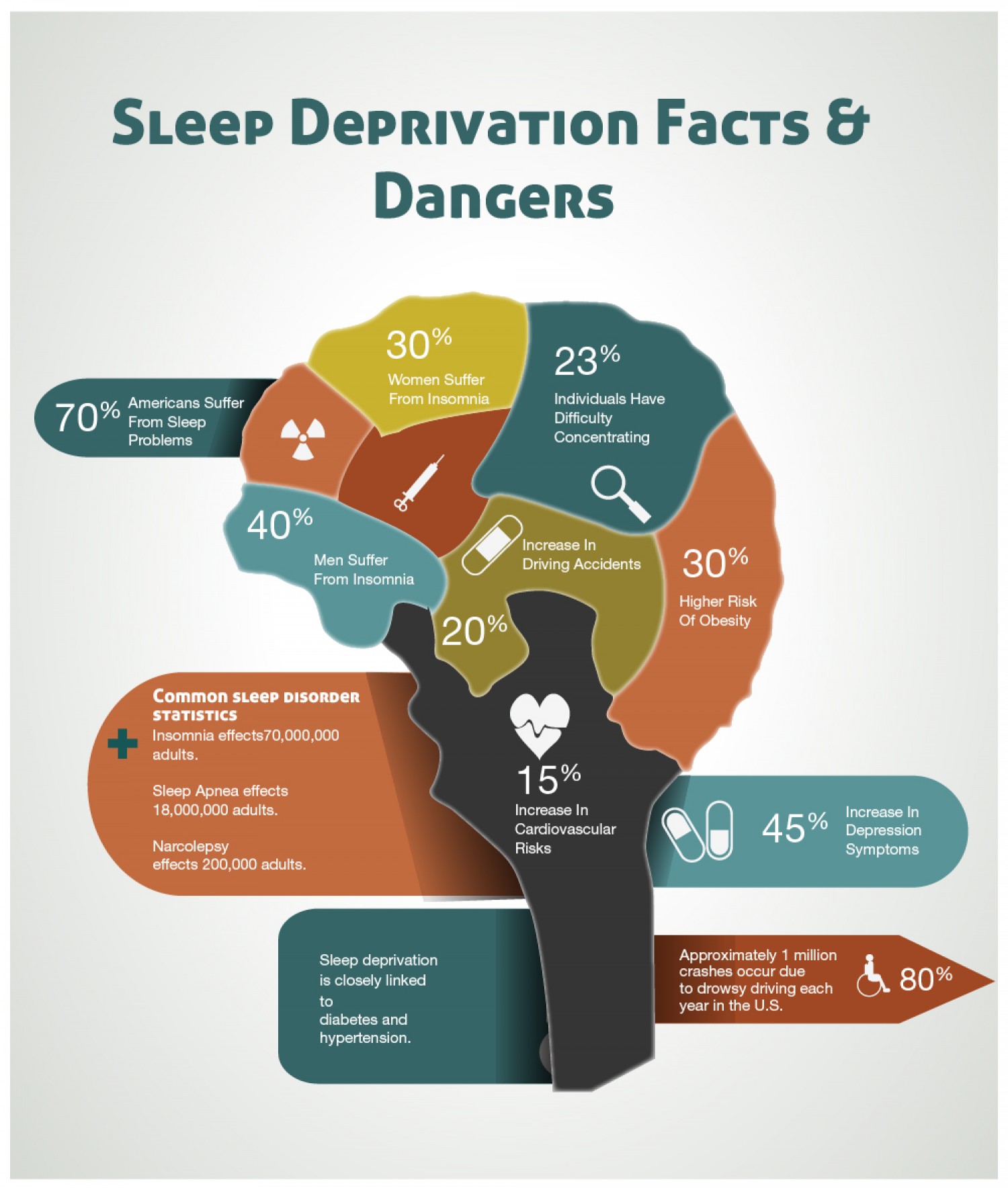Narcolepsy is a sleep disorder characterized by a frequent, and sometimes uncontrollable, desire for sleep. This can result in sudden bouts of deep sleep at any time and place, regardless of what is going on. This disrupts normal patterns and rhythms of sleeping. For example, a normal sleep pattern is the ability to sleep through the night with minimal awakenings, and then you may find yourself taking a nap during the day. However, someone suffering from narcolepsy may have trouble staying asleep during the night but find themselves falling asleep several times throughout the day, feeling refreshed after each nap, but soon feeling overwhelmingly sleepy again.
Irregular sleeping patterns are not only inconvenient. They can have medical, emotional, and psychological consequences. Falling asleep at the wrong time can create stress on your professional and social life, but also can be dangerous, for example, if one is driving. What causes Narcolepsy?
The actual cause of Narcolepsy is unknown. However, researchers have noticed low levels of the neurotransmitter hypocretin. Hypocretin is important for regulating the sleep-wake cycle. Without it, the brain is unable to signal to the body appropriate sleeping signals.
While it is not understood exactly what causes the loss of hypocretins, current research points to a combination of genetic and environmental factors as causes. Researchers have also identified a gene that is linked to narcolepsy, which about one-quarter of the U.S. population carries – if you did the math, that means only about 1 in 500 people with this gene will develop narcolepsy.
There are also psychosocial causes of narcolepsy with overwhelming stress being able to induce random bouts of sleeping. This is not a conscious decision to go to sleep because you feel too stressed to deal with life. But rather a subconscious onset of sleep immediately following a stressful event.
Facts about Narcolepsy
- It is relatively rare, affecting only about 1 in every 2000 people
- Average diagnostic time from the beginning of symptoms is about 7 years
- Narcolepsy symptoms generally begin to appear between the ages of 10-30
- Only an estimated 25% of people with Narcolepsy have received a formal diagnosis
- Narcolepsy is an incurable lifelong condition
- Studies indicate that its effect on quality of life is comparable to epilepsy
- Around 75% of people with Narcolepsy have type I, which includes cataplexy (details below)
Source: project-sleep
What are Narcolepsy symptoms?
Identifying narcolepsy symptoms will be very useful for diagnostic and treatment purposes. The following are symptoms of narcolepsy and their descriptions.
Excessive daytime sleepiness
During the day, light enters the eye and hits a structure called the retina which signals to the brain to release chemicals that promote wakefulness. However, during excessive daytime sleepiness, this doesn't happen as well, and individuals may find themselves more tired than normal, even when it is light outside. Excessive daytime sleepiness can be observed by the occurrence of more than 2 daytime naps where someone falls into deep, REM sleep.
Cataplexy
Cataplexy is a sudden loss of muscle tone, causing limpness as if you are asleep. This can be isolated, such as having a slack jaw, or it can happen to your entire body, causing you to completely lose control of muscle movement. Cataplexy can be a response to a sudden and strong emotion. Type one Narcolepsy involves random episodes of sleep with loss of muscle tone (cataplexy). Type two Narcolepsy does not involve cataplexy, so one could still have narcolepsy even if they don't experience cataplexy.
Sleep attacks
Sleep attacks are a common symptom of Narcolepsy. They are an onset of extreme sleepiness at any point in the day. Overwhelmed by this desire of sleep, in the midst of doing something, one may fall into REM sleep, a stage that is near the end of a normal sleep cycle. However, for narcolepsy disorders, REM sleep can happen at any time. These sleep attacks happen for seemingly no reason and may not have a relation to the amount of sleep one has at night.
Hallucinations
REM sleep can also play a role in hallucinations in narcolepsy. REM, or rapid eye movement, is the stage of sleep where dreams happen. If one enters this stage immediately, they may experience hypnagogic hallucinations, meaning they hallucinate right as they're going to sleep. However, if one enters this stage right before waking up, then they are experiencing hypnopompic hallucinations. Hallucinations are dream-like visions or delusions that seem very vivid and real, even able to induce physiological symptoms like a racing heartbeat or feelings of anxiety. All these characteristics are due to misplaced REM.
Sleep paralysis
Sleep paralysis is a temporary inability to move or speak right after waking up or right before sleep. It can last for only a few moments or upward of a minute, and naturally is quite terrifying. Some have even reported brief periods of an inability to breathe.
Sleep deprivation from interrupted nighttime sleep
Sleep deprivation is also common in people who suffer from Narcolepsy. This is caused by irregular sleep patterns that disrupt nighttime sleep. So one feels exhausted all the time because they can't sleep at night when they are supposed to, and can't sleep during the day because of responsibilities. However, sleep deprivation is very dangerous, so it is important that anyone with sleep deprivation finds a solution to get more sleep. Below is a chart of facts and dangerous associated with sleep deprivation.

What are the risks of Narcolepsy?
Because of the symptoms of Narcolepsy, there are certain dangers associated with this sleep disorder, such as driving accidents. Additionally, the sleep deprivation that can result from Narcolepsy include:
- Lower life expectancy
- Sleep deprivation linked to heart disease and stroke [source]
- Decreased immune function (in one study, people who received less than 7 hours of sleep were three times more likely to develop a cold than those with 8 hours or more of sleep)
- Strong link between sleep deprivation to weight gain
- Lower glucose metabolism and higher Type 2 diabetes risk [source]
- Link to increased inflammation [source] (those with IBS or other bowel disorders may have already noticed a relationship between intestinal health and sleep)
What are the treatment options for Narcolepsy?
Narcolepsy can be managed to varying degrees of success with medications and lifestyle adjustments, however, a diagnosis requires a sleep study.
If many parts of this article sound all too familiar, you should contact your doctor or one of our sleep specialists immediately. Take this free online sleep test to get started.


